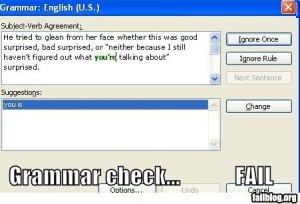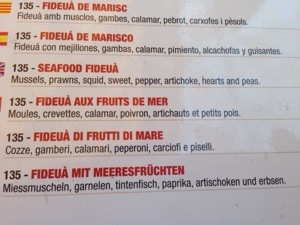A dash isn’t just “a dash”—there are different dash lengths—one em, two em, three em, and one en. An em is the width of a capital M and an en is one-half the width of an em.
THE EM DASH
The em dash can be used:

Image credit: elosa / 123RF Stock Photo
In place of commas
- For emphasis to set off nonessential phrases.
- She had four sports cars, but my favorite—the red Corvette.
- Where a nonessential phrase already contains commas. If a dash would create too emphatic of a break, use parentheses
- My “death row” meal—consisting of fried chicken, greens, and mashed potatoes—is also my comfort food.
- When you want to give special emphasis to the second part of a compound sentence, use a dash instead of a comma
- The movie should have won an Academy Award—and the directors all knew it.
In place of a semicolon
- Use a dash for a stronger but less formal break where independent clauses are closely related.
- She should not have taken the job—for one, she does not have basic Word skills.
In place of a colon
- Use a dash to introduce explanatory words, phrases, or clauses when you want a stronger but less formal break.
- Our marriage secret is simple—what’s mine is mine and what’s his is mine.
In place of parentheses
- When you want to give a nonessential element a strong emphasis, use dashes instead of parentheses.
- Susie—she’s been with the firm for 15 years—should be a great source of information for you.
THE EN DASH
The en dash is half the length of an em dash. You should use the en dash to connect numbers in a range and to mean “up to and including” when used in situations such as:
- The office is open from 9 a.m.–5 p.m.
- Her vacation is planned for May 2–10.
- His homework was to read pages 386–435.
- Our offices are on Floors 13–16.
An en dash is also used as a minus sign.
TYPING DASHES
One would think typing dashes is easy. Not so! Here are some guidelines
- Do not just type a hyphen for a dash.
- In word processing programs, you should have access to an em dash. In Word 2010, it is under Insert, Symbol, More Symbols, Special Characters.
- The en dash is in the same place.
- If you don’t have access to the characters, you can construct an em dash by typing the hyphen twice with no space between the hyphens and no space between the hyphens and the words on both sides of the hyphens.
- A two-em dash indicates missing letters in a word. If you don’t have a two-em dash, type four consecutive hyphens (again with no spaces between or around), i.e., Mrs. S—-h.
- A three-em dash indicates where an entire word has been left out or needs to be provided. If you don’t have access to a three-em dash, type six hyphens (with no spaces between or around), i.e., She said her annual salary was $——.
- If your word processor doesn’t have an en dash, use one hyphen.
- Always type the dash at the end of the line and do not start a new line with a dash.
That was a lot about the simple dash, but dashes are different from hyphens and should be treated differently. So dash a quick note—using correct dashes—to let me know if you learned something. Then share this post with others who need to know about dashes.


 Follow
Follow








